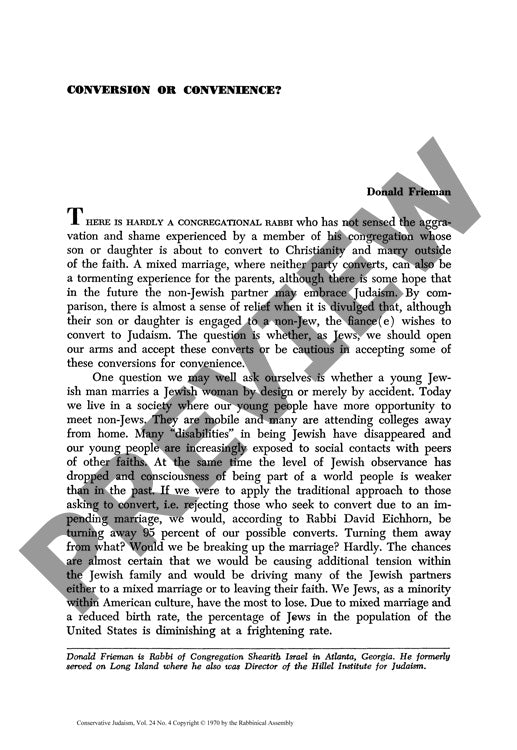Conversion or Convenience
Couldn't load pickup availability
Religious conversion motivated by marriage has long challenged Jewish communities, forcing them to balance tradition with demographic realities. When the Nassau-Suffolk Hillel Institute for Judaism launched a pioneering sixteen-week conversion program in 1968, it tackled this dilemma head-on through structured education rather than traditional rejection. Through rabbinical referral, the program selectively accepted candidates and required both partners to attend comprehensive coursework in Hebrew, Jewish history, beliefs, and customs, supported by ongoing pastoral counseling. Analysis of approximately fifty participating couples revealed a demographic pattern: conversion candidates were typically 18-21 years old, predominantly female (2:1 ratio), and from non-observant backgrounds. While traditional approaches would have rejected 95% of these marriage-motivated conversions—potentially alienating Jewish partners from their faith—the structured program demonstrated promising results. Though ritual observance (mitzvot) showed minimal increase, participants exhibited markedly enhanced Jewish awareness and loyalty. The findings establish structured conversion programs as a pragmatic bridge between maintaining religious integrity and addressing declining Jewish demographics. Selective acceptance of sincere candidates, combined with comprehensive education and community integration, offers a viable middle path between unconditional acceptance and wholesale rejection of convenience conversions.

More Information
-
Physical Description
-
Publication Information
Published 1970
ISBN
-
Publication Credits
Donald Frieman

